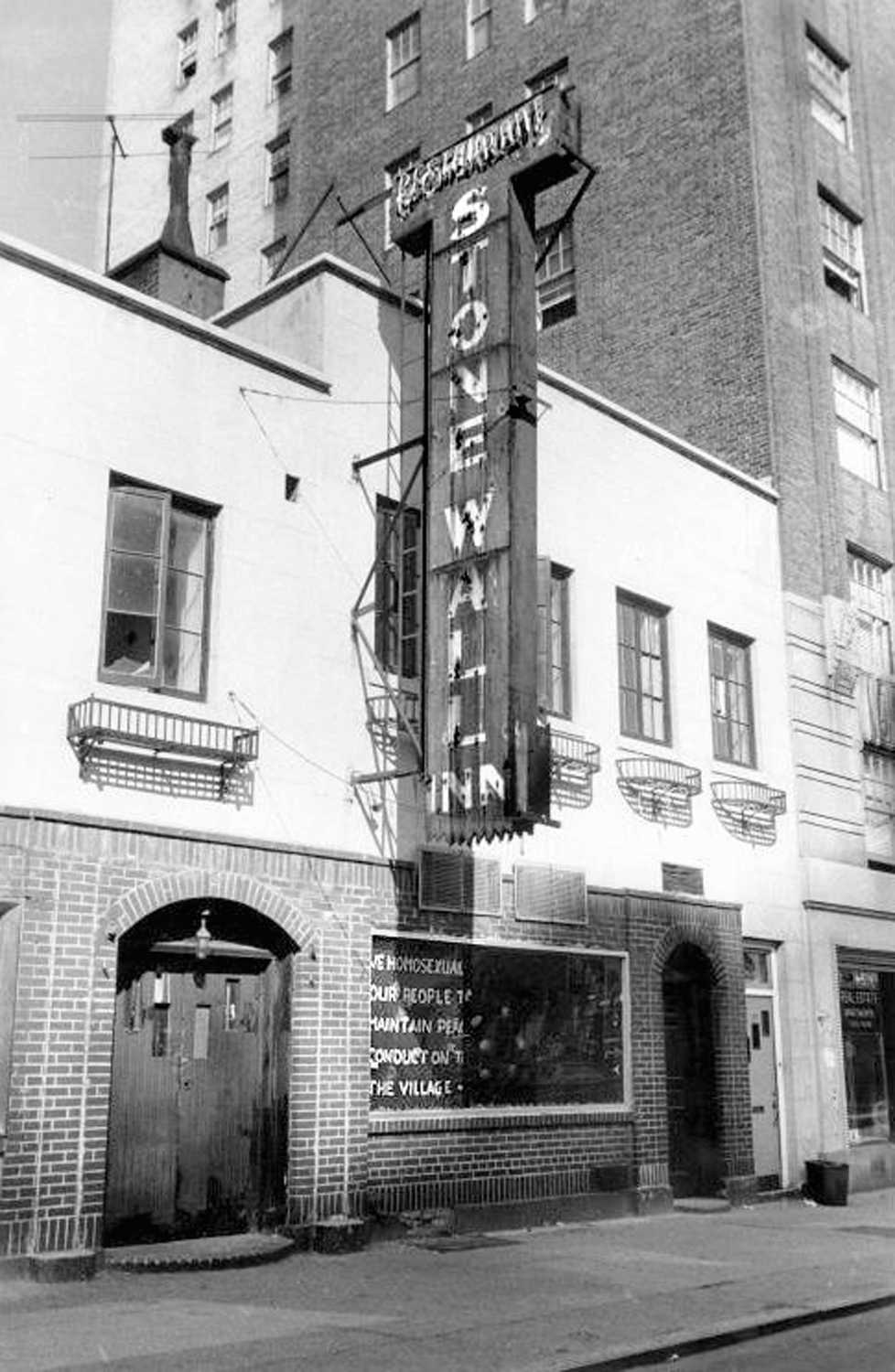Pittsburgh Pride, 50 years after Stonewall


The Stonewall Inn in 1969.
On June 18, 1973, an article appeared in the Pittsburgh Post-Gazette with the headline, “Gays Hold First Pittsburgh March.” The march was smaller than Pittsburgh’s modern Pride parades, which draw thousands Downtown annually.
That year, just a few dozen members of Pittsburgh’s LGBTQ+ community marched from Market Square in Downtown to Oakland’s Schenley Park in commemoration of the 1969 Stonewall Riots. One march participant quoted in the article “could not give his name because he has a job and position in the community to protect,” the Post-Gazette reported.
The gay rights movement had a long way to go. But the Stonewall riots are widely considered to be one of its main catalysts. The riots began at New York City’s Stonewall Inn in its Greenwich Village neighborhood, when it was common for police to raid gay bars and harrass members of the LGBTQ+ community.
When police raided the Stonewall Inn in the early hours of June 28, 1969, the patrons fought back, sparking a five-day series of protests and leading to the creation of extensive activist circles that would continue the fight for gay liberation.
Fifty years later, the influence of the spontaneous demonstrations can still be seen in the modern fight for LGBTQ+ liberation, including in Pittsburgh. Various LGBTQ+ organizations in Pittsburgh take their names from the riots, including the Steel City Stonewall Democrats, the largest LGBTQ+ political organization in western Pennsylvania, and the Stonewall Alliance, a non-profit sports league for LGBTQ+ individuals and allies.
Rob Anderson, the executive director of the Stonewall Alliance, said many of the organization’s members are unaware of its namesake until joining. Anderson said he thinks it’s important that people participating in Pride events each June understand the history of the fight for equal rights for LGBTQ+ individuals.
“We see [Pride] as a big festivity,” Anderson said. “But do we really know where it all started from?”
Today, Pittsburgh has two Pride parades each June, where LGBTQ+ Pittsburghers are joined by allies and elected officials on their marches through the City. And on the exact anniversary of the Stonewall riots, two City Councilpeople introduced legislation to protect LGBTQ+ residents of Pittsburgh. The legislation aims to ensure the City’s anti-discrimination code includes all gender identity and gender expression, and will remove gendered language from the code.
The movement’s impact on the City has never been more clear than it is now. Shortly before the advent of this year’s Pride, an art installation appeared in Shadyside at the intersection of Ellsworth and Maryland avenues.
City Councilperson Erika Strassburger, who represents the district that contains the installation, worked with local business owners on the installation.
After a call was put out to solicit proposed designs, Leonardo Moleiro’s design, a multi-colored, multi-patterned circle, was selected. Moleiro, a Venezuelan artist, told the Pittsburgh City Paper the piece represents the colors of the traditional pride flag and the transgender flag, while also including a nod to people of color in the LGBTQ+ community.
Strassburger spokesperson Hersh Merenstein said this particular street corner carries important history.
“It was first brought to our attention by some of the LGBTQ business owners on the street, such as the owners of Eons Fashion Antique, the bar 5801 and Harris Grill as a particularly important history for the struggle for LGBT rights,” Merenstein said. “When marriage equality was announced, people marched on that street, so it was a natural choice.”
Richard Parsakian owns Eons Fashion Antique, located on Ellsworth Avenue, and has been involved in LGBTQ+ activism in Pittsburgh for several decades. Parasakian, who has served on Mayor Bill Peduto’s LGBTQ+ Advisory Council since its inception in early 2017, helped approve the design for the art installation.
Over the years, Parsakian said, he’s watched visibility for the LGBTQ+ activism increase. But in Pittsburgh, as it has throughout the country, that visibility has also come with more intra-community disagreements. Those disagreements are evident in the City’s two parades — the “People’s Pride” parade appeared after some LGBTQ+ community members felt the larger Pittsburgh Equality March, then sponsored by EQT, had become overly beholden to corporations.
“I’m more of a uniter than a divider,” Parsakian said. “I want people to sit down and have a discussion. Sometimes I get a little frustrated that we don’t have the ears to listen to other community voices.”
Anderson said getting the word out about the riots helps members of the LGBTQ+ community to understand their history, and bring awareness to the public at large.
“I think that [Stonewall] is what has really caused all of this to happen,” Anderson said. “It’s what put LGBTQ+ people out in the spotlight to feel like we are real, like everyone else.”
Contributed reporting by Emily Wolfe.
Recent Posts
Review | Delayed checkouts at ‘The White Lotus’: An unoriginal third season
(Contains Spoilers) There is no meditation class, no reiki session, no nutritionally balanced, organic food…
Celebrating Women’s History Month with the HerStory Slam Event
Idaya Sasikumar, a first-year psychology student, took to the stage to read her personal story.…
Review | Michael Franti & Spearhead reflect on the power of love in new album ‘Welcome to the Family’
Nothing says “Welcome to the family!” like a new baby. Soul-rock band Michael Franti &…
How hurling put me on ESPN and in a National Championship game
Nothing is more difficult than joining a new club in college. It is terrifying when…
Column | It’s now or never for Henry Davis
When Henry Davis came into Monday night’s game against the Washington Nationals at PNC Park,…
Pitt men’s basketball navigating transfer portal difficulties
Pitt men’s basketball is like any other team in the world of large NIL deals…